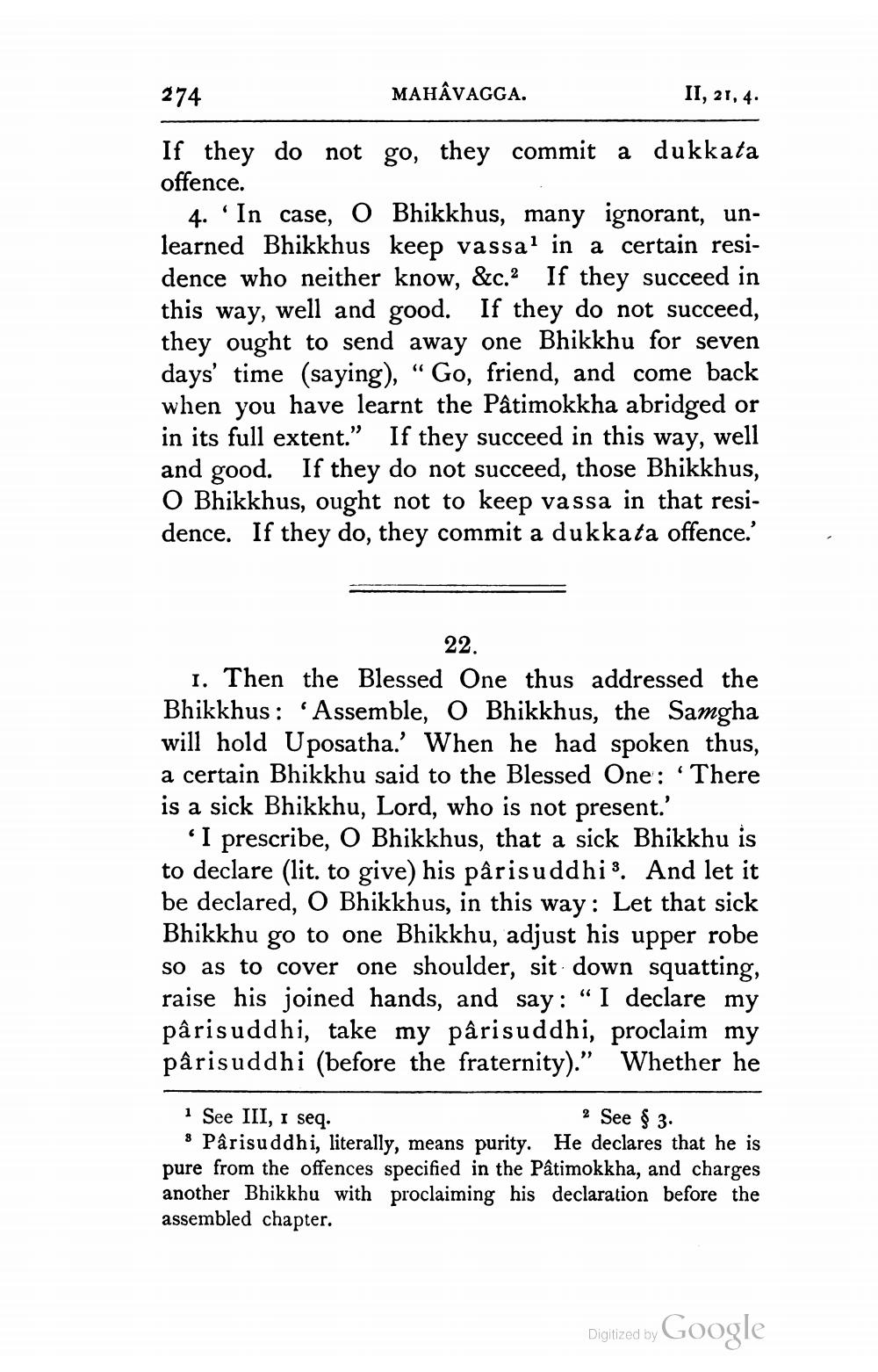________________
274
MAHAVAGGA.
II, 21, 4.
If they do not go, they commit a dukkata offence.
4. In case, O Bhikkhus, many ignorant, unlearned Bhikkhus keep vassa1 in a certain residence who neither know, &c.2 If they succeed in this way, well and good. If they do not succeed, they ought to send away one Bhikkhu for seven days' time (saying), "Go, friend, and come back when you have learnt the Pâtimokkha abridged or in its full extent." If they succeed in this way, well and good. If they do not succeed, those Bhikkhus, O Bhikkhus, ought not to keep vassa in that residence. If they do, they commit a dukkata offence.'
22.
I. Then the Blessed One thus addressed the Bhikkhus: Assemble, O Bhikkhus, the Samgha will hold Uposatha.' When he had spoken thus, a certain Bhikkhu said to the Blessed One: There is a sick Bhikkhu, Lord, who is not present.'
'I prescribe, O Bhikkhus, that a sick Bhikkhu is to declare (lit. to give) his pârisuddhi3. And let it be declared, O Bhikkhus, in this way: Let that sick Bhikkhu go to one Bhikkhu, adjust his upper robe so as to cover one shoulder, sit down squatting, raise his joined hands, and say: "I declare my pârisuddhi, take my pârisuddhi, proclaim my pârisuddhi (before the fraternity)." Whether he
6
"
2 See § 3.
1 See III, I seq.
Pârisuddhi, literally, means purity. He declares that he is pure from the offences specified in the Pâtimokkha, and charges another Bhikkhu with proclaiming his declaration before the assembled chapter.
Digitized by Google




